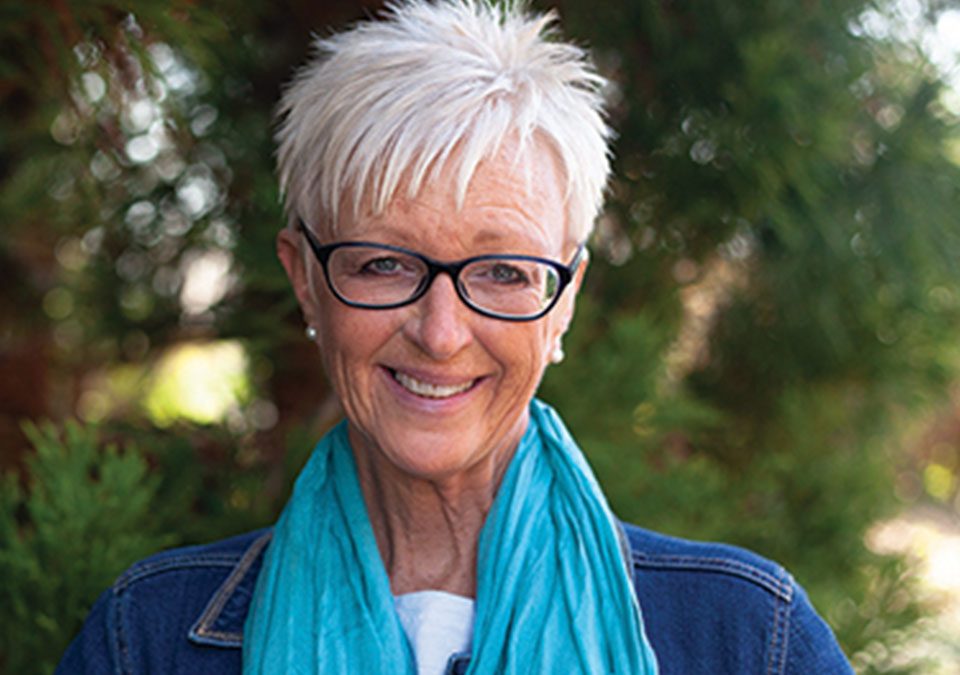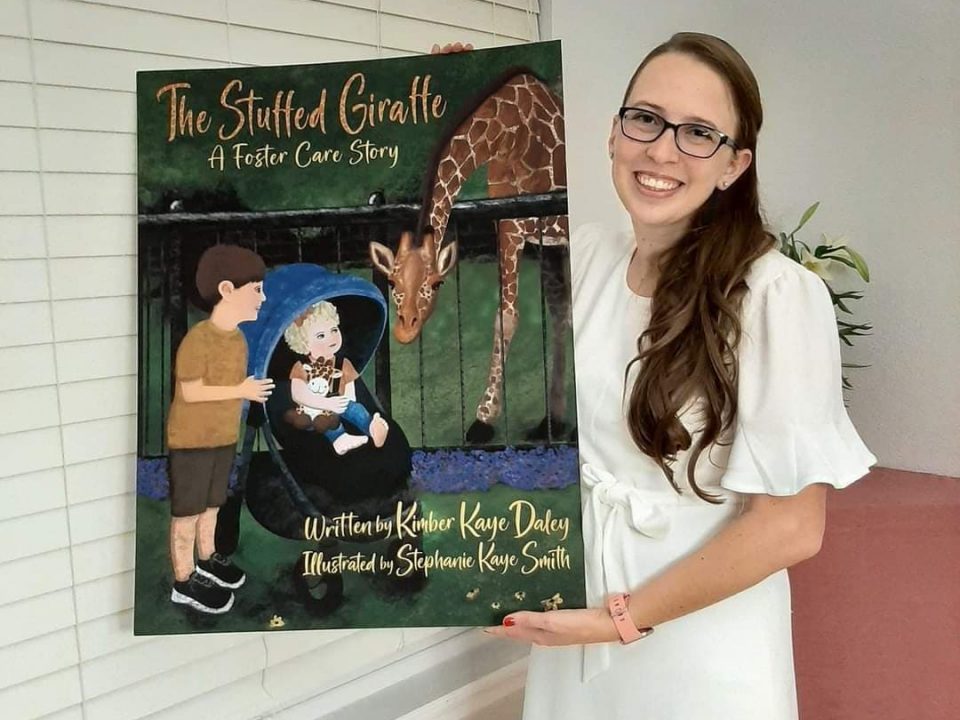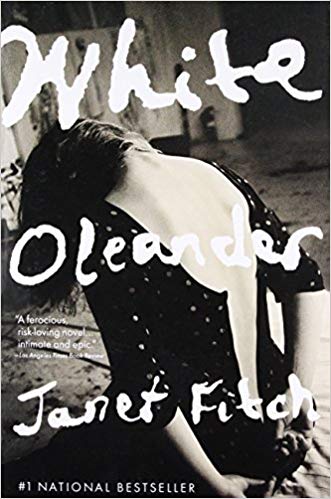
Understanding who our parents are and how they relate to our identity is part of growing up. This fact is particularly true for children who experience foster care because their parents have failed them at some point in time – possibly many, many times. White Oleander by Janet Fitch demonstrates how much a birth parent can overshadow a child’s life, even when the parent is not physically present.
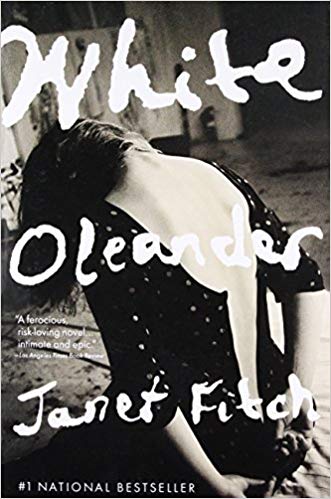
In the novel, Ingrid Magnussen, a brilliant poet and unconventional woman, becomes obsessively vindictive when a lover rejects her. After stalking him and breaking into his home, she murders him. Her 12-year-old daughter, Astrid, spends a week on a neighbor’s couch waiting for her mother to come back from being arrested before the police show up for her.
“’I’m sorry,’ Michael [the neighbor] said. ‘I’d keep you if I could. But you know how it is.’”
Astrid’s six-year journey through the California foster system begins. Each place she lands brings a bizarre cast of characters and an insane amount of trauma. With every experience, she relates how she is feeling back to her mother. For example, “Uncle Ray,” the live-in boyfriend of her first foster mother, teaches her to shoot a gun. While she shoots, she is aware he is watching her. She says,
“And I thought, this was what it was like to be beautiful. What my mother felt.”
Throughout the book, as Astrid attempts to survive both physically and emotionally, the reader gets the sense that all her choices are somehow linked to her mother – whether Astrid is trying to be like Ingrid, rebel against her, or fill the hole left by her absence.
Astrid isn’t the only person who can’t escape the connection to her mother. She sits in the hospital beside her friend Yvonne when Yvonne is in labor, and she is surprised when Yvonne calls out for her mother during contractions. Astrid says,
I didn’t know why she would call for her mother. She hated her mother. She hadn’t seen her mother in six years, since the day she locked Yvonne and her brother and sisters in their apartment in Burbank to go out and party, and never came back. Yvonne said she let her boyfriends run a train on her when she was eleven. I didn’t even know what that meant. Gang bang, she said. And still she called out, Mama.
It wasn’t just Yvonne. All down the ward, they called for their mothers. Mommy, ma, mom, mama. Even with husbands at their sides, they called out for mama.
Astrid concludes that women don’t call for their actual mothers, the women who had let them down. She says,
“They wanted the real mother, the blood mother, the great womb, mother of fierce compassion, a woman large enough to hold all the pain, to carry it away.”
Even if this conclusion is correct, the idea of a universal mother doesn’t erase the pull a flesh-and-blood mother has on her child. “I am your home,” Ingrid once told Astrid, and Astrid finds this statement to be true, no matter how hard she tries to escape it. In fact, she longs for this home: “It was a secret wanting, like a song I couldn’t stop humming, or loving someone I could never have.”
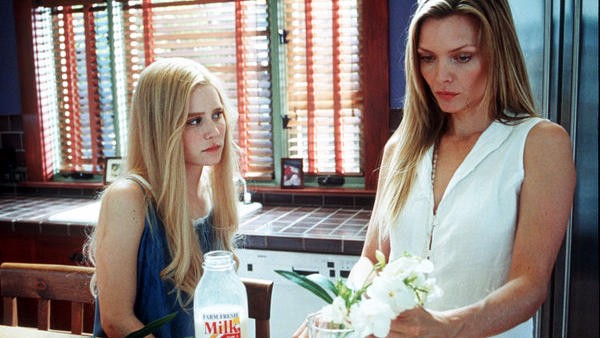
The foster system proves to be a poor replacement. If anything, it is a blind and callous parent, only looking after the immediate physical needs of Astrid rather than considering the emotional effects its care, or lack thereof, has on her. Over time, Astrid loses her innocence, as Ingrid realizes when 17-year-old Astrid visits her in prison. Astrid describes the scene:
She stopped when she got under the overhang, and I didn’t move, I wanted her to see who I was now. My acid green shirt with the industrial zipper, my eyes ringed in heavy black shadow and liner, my ears with their octave or earrings… I could pass for any girl heading to just where my mother was… For the first time when I visited, she didn’t smile. I could see the shock on her face, and I was glad of it… My mother reached out and took my hand. I let her. “When I get out, I’ll make it up to you,’ she said. ‘Even in two or three years, you’ll still need a mother, won’t you?”
Astrid seems to realize she still does need a mother, for she regrets asking Ingrid a question that tests Ingrid’s love for her.
How did Astrid test Ingrid, and what was Ingrid’s response? You’ll have to read the book… and I definitely recommend it as a great read – as long as you can handle being disturbed by some of the things that happen in the story. (I do not recommend it for a young adult audience.)
White Oleander is a beautifully powerful book – moving at times and appalling at others. Fitch does an amazing job of revealing the hearts of her characters so that their choices – even the shameful ones – seem to make sense emotionally. Many scenes will shock you, but their poetic descriptions will enchant you. As much as you will think you probably should, you won’t be able to stop reading. In the end, you will feel the draw a mother has on her child, and you grieve for all the children whose mothers are absent from their lives.
Depending on your own story, you might even grieve for yourself.


